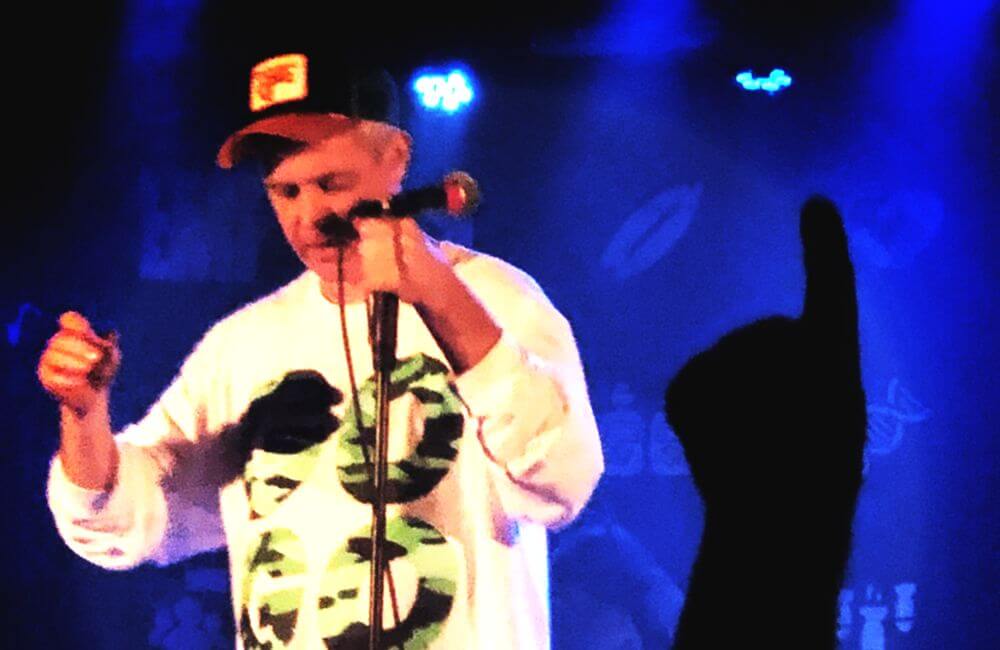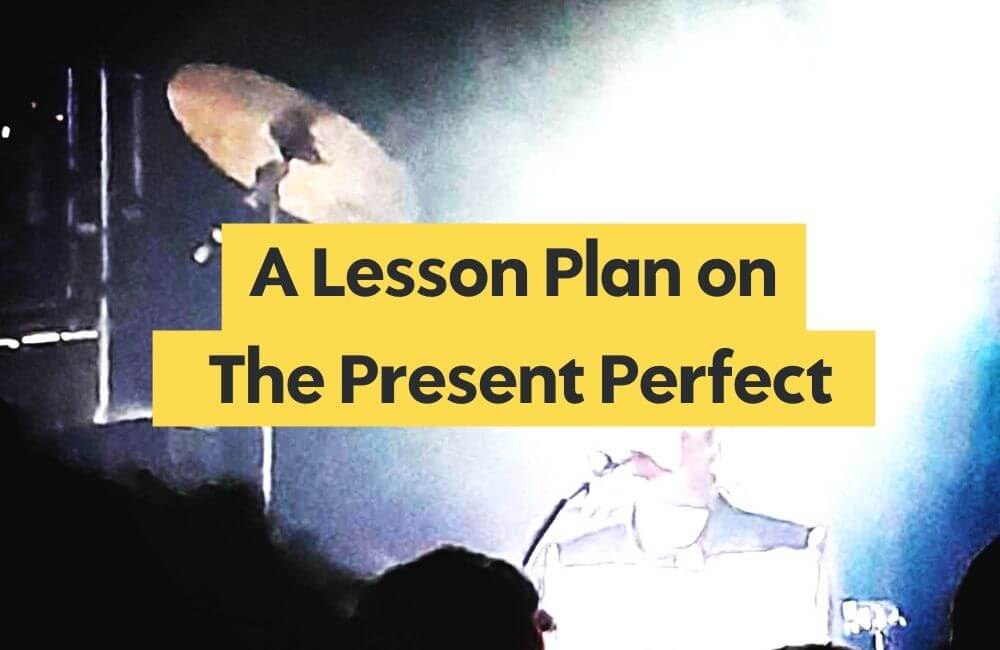Lots of otherwise brilliant English teachers struggle to bring fresh creativity and culture into their lessons.
I’m the opposite — I can’t keep them out.
This free lesson plan in the 2nd conditional is designed for adults and professionals in conversation classes.
Use it to spark a meaningful conversation about music and get your learners sharing something personal.
Because the deeper language touches you, the more memorable it is.
What if Your Singer is (Almost) too Drunk to Sing?
That was my real experience last night (Lemonheads, Glasgow). It got me thinking: what do we really want from our artists—the human or the god?
This blog isn’t just me musing after a concert. It’s also a ready-to-use lesson plan. If you’re an English teacher looking for a richer way to teach the 2nd conditional, or a learner who’s tired of ELT resources that don’t interest you, this is for you.
Our conversation-based approach works especially well for creatives — artists, designers, architects, musicians and makers — but really, anyone who loves culture and wants more meaningful conversations in English will benefit from this lesson plan.
Enjoy!
The Attraction of Live Music
For many of us, going to a gig can feel like a pilgrimage, especially when we have work and family responsibilities and have to travel.
Buying a concert ticket can be a big investment. Maybe you need to travel, arrange childcare, or just find the energy during a busy working week. But we do it for time with our favourite band, or to support performers we care about, and because it is often a rare opportunity: when we miss a gig, it could be years before the band returns… or never.
So how would you feel if the singer walked on stage, clearly a bit drunk?
Use Your True Voice
Because of the variables, gigs are the perfect topic to practise the 2nd conditional, which we use to imagine situations and their consequences:
→ If I went to see Metallica* play Paris, I would have to book time off work.
→ If they play an encore, I could miss the last train.
Those “what ifs” are the conversations we naturally have when discussing music, travel, and live events.
Additionally, there’s an important mindset shift when a learner talks about the bands they would choose to see; it’s expressive. Sharing music tastes is showing who you are, making it one of the most powerful ways to connect personally to your second language.
A Quick Review of the 2nd Conditional
We use the 2nd conditional to talk about imaginary or hypothetical situations in the present or future.
But for creatives, it’s far more than another bit of grammar. It’s how you explore what ifs in your work:
-
If we performed that song slower, would it have more or less impact?
-
“If you widened the staircase, people would probably pause there and use it as a meeting point.”
-
If you made the canvas a diptych, it would be cheaper to transport.
This structure helps you experiment, collaborate and describe possibilities with clients. It also softens your ideas — instead of insisting, you’re inviting others to consider a possibility.
The 2nd Conditional Lesson Plan
Part 1
Discussion: How much is too much?
Defining Your Limits
There’s a whole scale of inebriation.
→ If the singer was drinking a beer while performing, would you be fine with it?
→ If he were staggering about, would you still enjoy the show?
→ What if she tripped and fell?
When is it too much? What level of inebriation would make you uncomfortable?
-
Is it about the health of the musician, the quality of the music, or your need for light-hearted, stress-free entertainment?
“I once saw a favourite singer so high he ran repeatedly at a wall, hurting himself.
That level of danger and loss of control was strangely compelling.
It added tension to the music”.
Ruth, 2025
Music Icons
Some artists built their reputation on excess.
-
Jim Morrison famously performed high.
-
Bez from the Happy Mondays seems to never sober on stage—to the point it’s part of the show.
→ What other musicians are famous for excessive drinking and drugs?
→ Would it make their music more or less interesting if they cleaned up their act?
Useful Vocabulary
Talking About Being Drunk / High
Drunk (alcohol): pissed (UK, informal/slang), wasted, plastered, legless, out of it
High (drugs): off your face, fucked, fucked up
Part 2
What If the Singer Is Unwell?
Perhaps we go to concerts expecting perfection. But is there something even more compelling in an imperfect performance?
Of course, sometimes it’s not alcohol or drugs that affect a performance. It could be something as simple (and human) as illness.
I recently saw one of my favourite singers (Pat Kane/Hue & Cry) perform with a heavy cold.
The set was shorter than usual, and some of the audience were disappointed, equating duration with value.
But for me, as a fan of 30+ years, I actually felt I understood the craft of the songs more deeply. I noticed which ones he reshaped to avoid the high notes.
I’m sure it wasn’t the show he wanted to give his audience, but it was heartfelt and vulnerable.
- If he had cancelled the show at the last minute, I would have been let down, as I had organised an event around it.
- I understood that if he had played longer, he wouldn’t have been able to sing the next night.
(The 3rd conditional talks about imaginary past situations — things that didn’t actually happen).
So, what about you?
→ If the singer was unwell, how would you feel? Would you prefer a substitute singer, a shorter set, or a clear cancellation?
→ How bad would a show have to be before you asked for your money back?
Of course, it’s not just the performers who can spoil the night.
→ If the audience kept shouting out, would it spoil the show?
→ If the sound quality was poor, would you leave?
→ If the concert started late, how would you feel?
Part 3
Does Age Matter?
What about ageing performers? Does age matter?
→ Which elderly performers would you still go and see?
→ Are there any who are touring that you feel are too old, or just too expensive for their age?
Part 4
Your Fantasy Gig
Think about all your favourite musicians, past and present. Who would you see if you had the chance? Use the 2nd conditional to write your answer – and tell me why!
The 2nd conditional isn’t only for impossible or fantastical things (like If Bowie came back from the dead, I would go). It’s also widely used for imaginary or hypothetical scenarios — whether they’re likely, unlikely, or simply not real right now.
Find Your True Voice
At True Voice English, we know that artists, designers, musicians, and makers have usually had to squeeze themselves into mismatched English classes their whole lives.
It’s a waste of your energy trying to care about conversation that doesn’t excite you, and time that’s better spent making art.
We believe that improving your language skills shouldn’t be separate from your creative work, but part of it.
That’s why we take our clients on a creative journey that explores making, sparks concepts and responses — and does it all in English.
This lesson on the 2nd conditional is just one example: it’s no longer a dry grammar point, it’s a vital tool for international collaboration that you can now use with precision.
It takes a creative background to understand the language skills artists really need — like colloquial terms for describing being drunk, and knowing how important accurately using the 2nd conditional, the what if, will be for exploring ideas together.
Discover your year-round options for improving your English for Art Purposes — with courses and guided conversations designed for artists and designers, including:
-
Presentation Coaching
-
Sketchbook (a practice-led English method)
-
TEN Talks (real conversations with UK practitioners)




Recent Comments